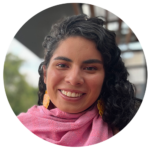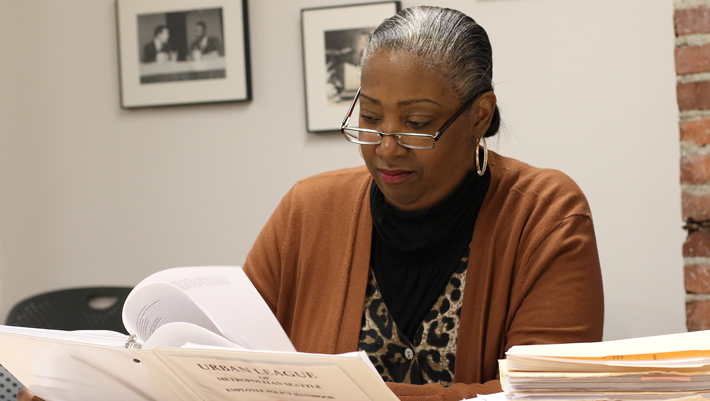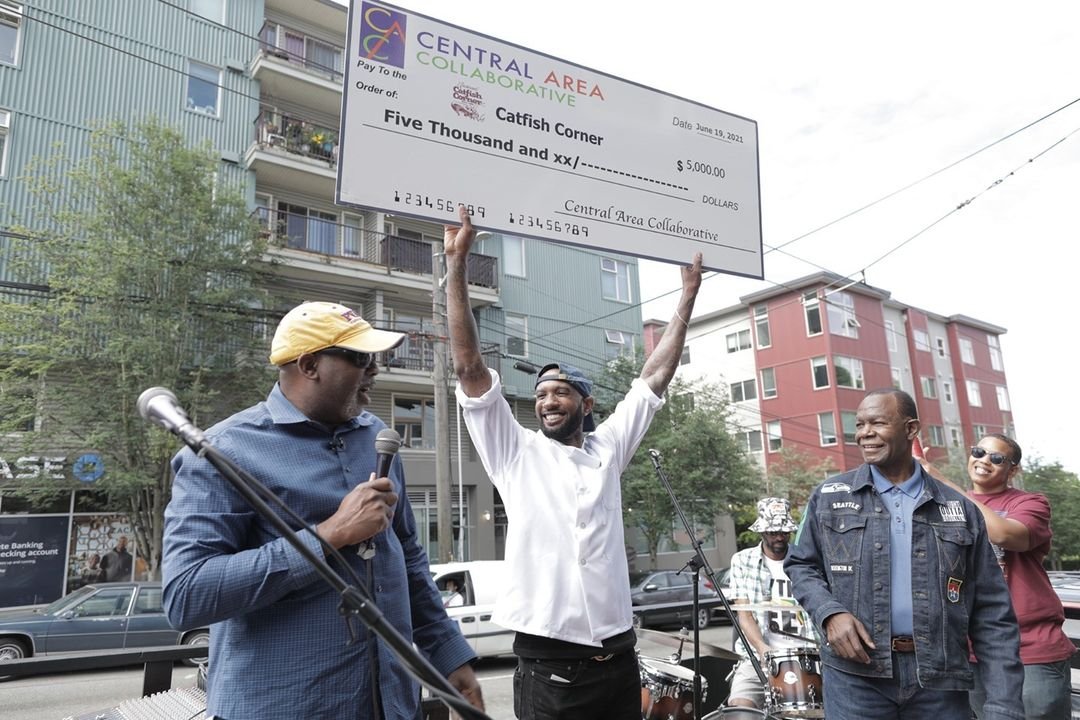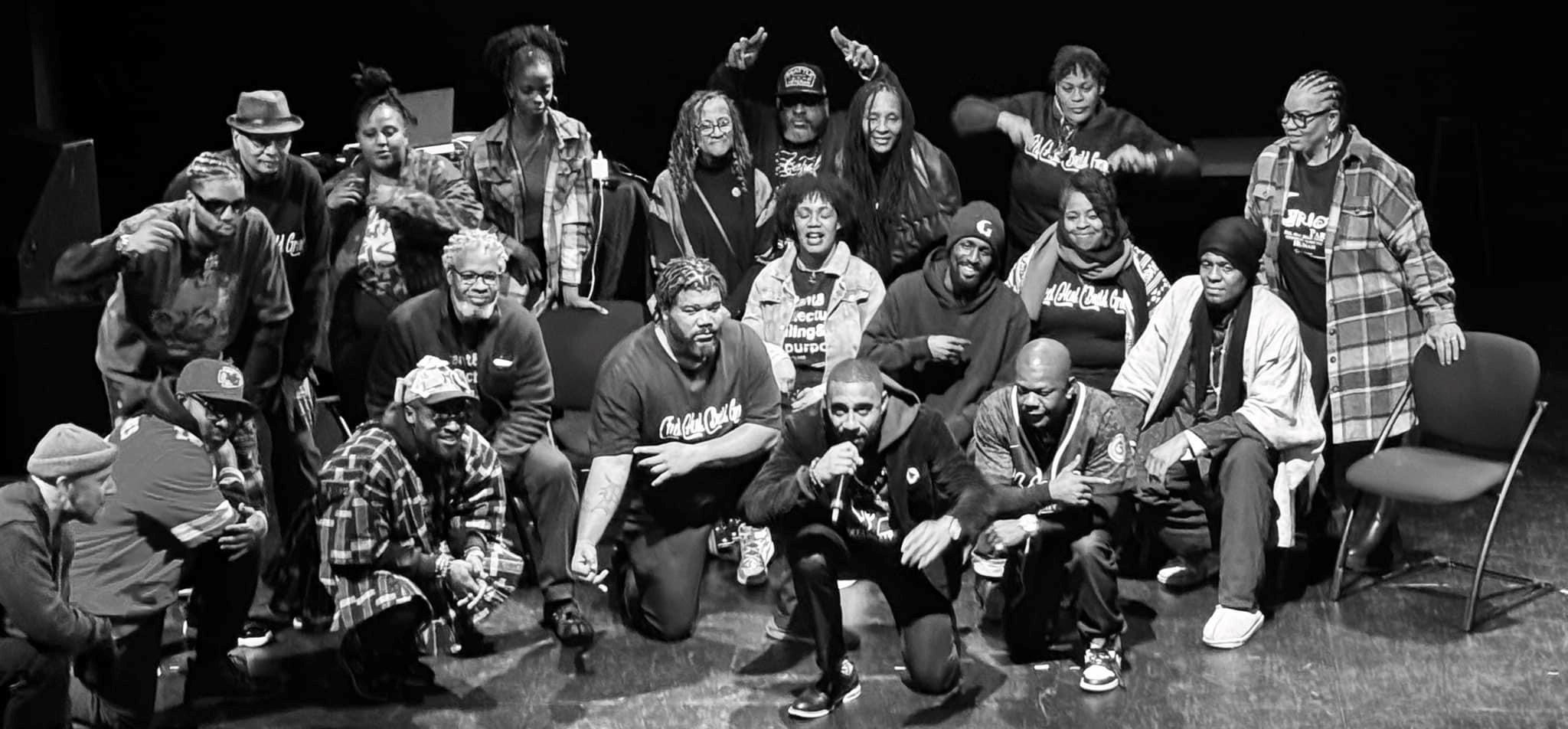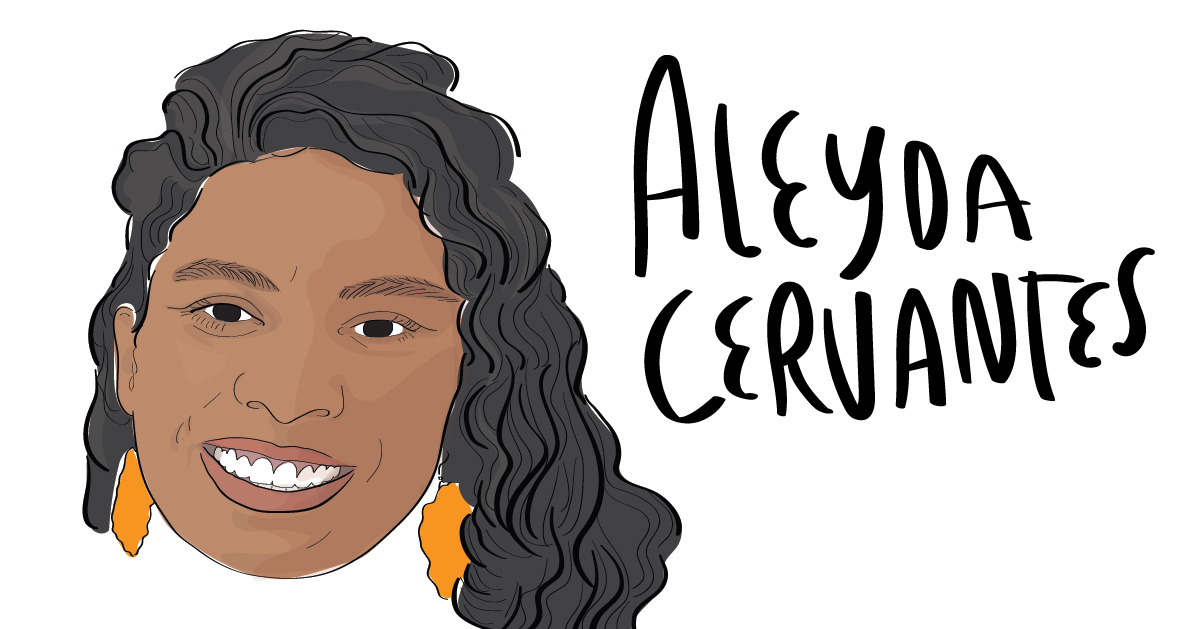
In celebration of Latinx Heritage Month, we are hosting a series of profiles and stories to amplify and honor people, businesses, organizations, and projects connected to Seattle’s Latinx community.
Dia de los Muertos
by Aleyda Cervantes
Today I want to honor Dia de los Muertos, remembering this holiday is and always has been an Indigenous celebration. Since I was young, Dia de los Muertos has been close to my heart and identity. My family would make food, then walk to the campo santo (cemetery) together to visit my great-grandmothers. I loved cooking from my great-grandmothers’ favorite book, going to the market, and picking up some sweet treats to leave them there. We’d buy or make some sugar skulls to decorate our altar at home. When we arrived at the campo santo, music was already playing, while some other people were praying. We had to go to mass around midnight and after that, we would try to stay with our ancestors all night. When I moved to Washington, so far from the land where we buried my family, I often felt disconnected from my family lineage. I longed for connection to my culture and my roots, and living in a predominately white place made it extremely difficult to find spaces where I was able to connect to this part of my culture.
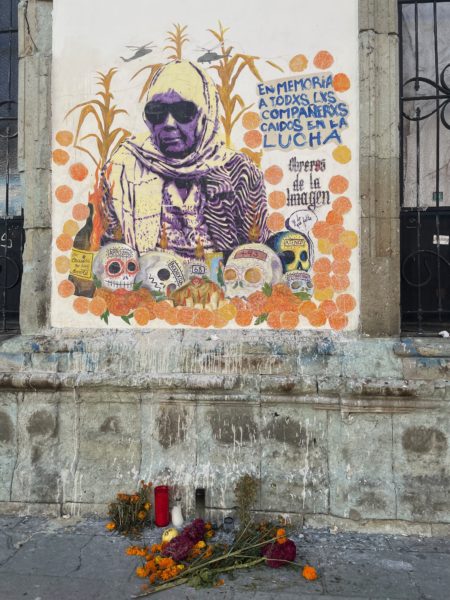
When I moved to college in the Bellingham area, I had the opportunity to honor the holiday by connecting with people from Whatcom Community College and organizing an event that was open to the entire community. I believe at the heart of Dia de los Muertos is community. With this in mind, we had a Danza Azteca, food, dance, and music. We would build two altars and invite people to write the names of their loved ones and place them at the altar. It was a way to keep connected with each other because storytelling is another way to keep our ancestors’ legacy alive.
When I moved to Seattle, I wanted to keep the same mindset – that Dia de los Muertos is a holiday for and by community. I have found many places where I am able to gather and celebrate with others. These celebrations take so many shapes and forms. Like getting together at each other’s houses and sharing about our loved ones that have passed, and attending events put on by our communities’ members. I cannot imagine having to do this holiday alone. What an honor to be a guest in Coast Salish territory and have part of my culture and history with me thanks to the wonderful community in the Seattle area.
Although for the first time in 12 years I was able to go to Mexico during the fall season. Last year for Dia de los Muertos I got to travel to Oaxaca. What a privilege to be able to enjoy such a beautiful holiday in a city with so much history and culture around Dia de los Muertos. But soon I found myself in a place full of tourists from all over the world, most of them acting like Dia de los Muertos is another spring break. Their sole purpose for being there was to party and drink. They wore painted faces and were extremely disrespectful to the locals.
One of my great friends called this the “Coco” Effect, when people believe that Dia de los Muertos shares a lot of similarities with Halloween and that it is open to anyone for celebration. I’m not saying that people shouldn’t celebrate their ancestors, but it is important to stay critical of the way we do it. Dia de los Muertos is not about painted faces and skulls. It’s not even about the decorations. It’s a day of remembrance, connection, and community.
When we celebrate with others, as we respectfully participate in any events let us also remember that this event is Indigenous. It has always been. As we participate in our many celebrations, let us stay critical about our positionality and identity. Are we participating in a way that is respectful and not appropriating another culture?
As the commercialization of Dia de los Muertos has spread to so many different stores, I urge us to not support them, since they are capitalizing off a holiday that’s not their own. To honor our death means to stay rooted to our identity and history. If this is one of your first times celebrating this holiday, I invite you to read Indigenous literature and educate yourself about not only Dia de los Muertos, but the history of colonialism in the place where you live. The act of honoring begins with us. Educating ourselves is the best way to participate.
This Dia de los Muertos, let us honor Indigenous people. Let’s honor our loved ones. And remember that this is Native land. Hoy y simpre esta tierra es indigena.
